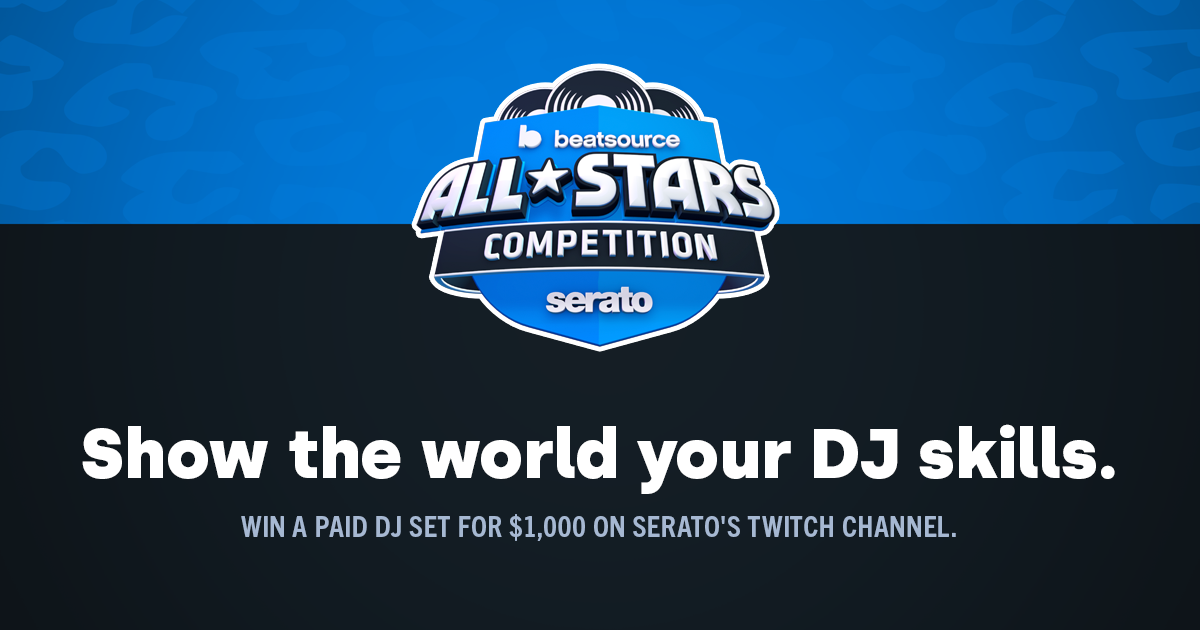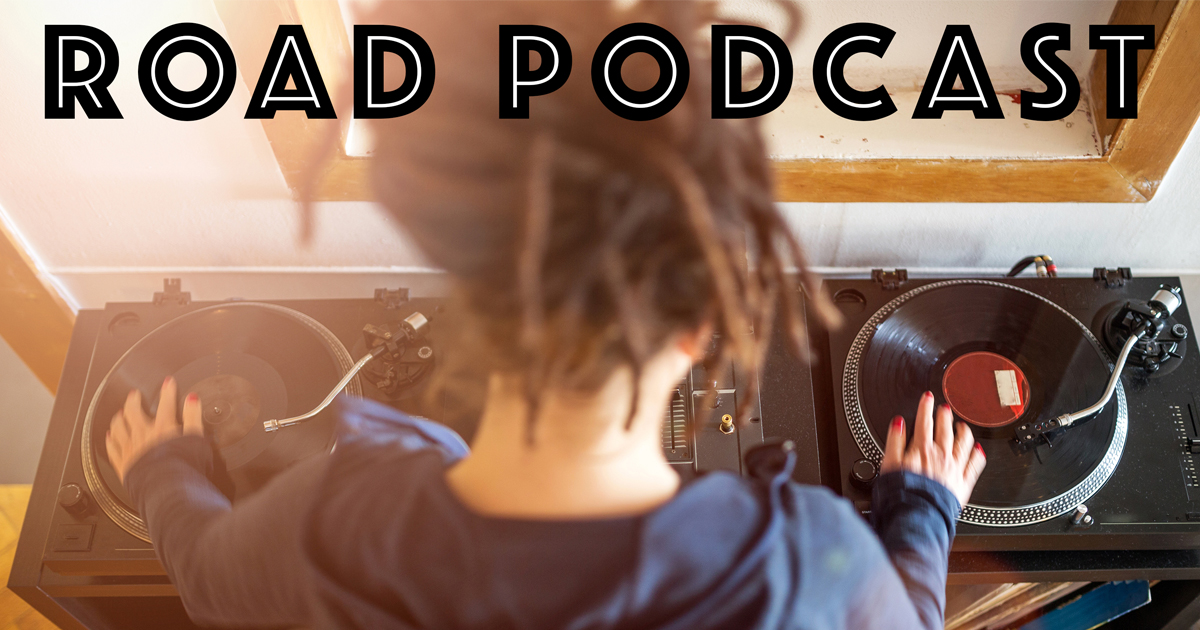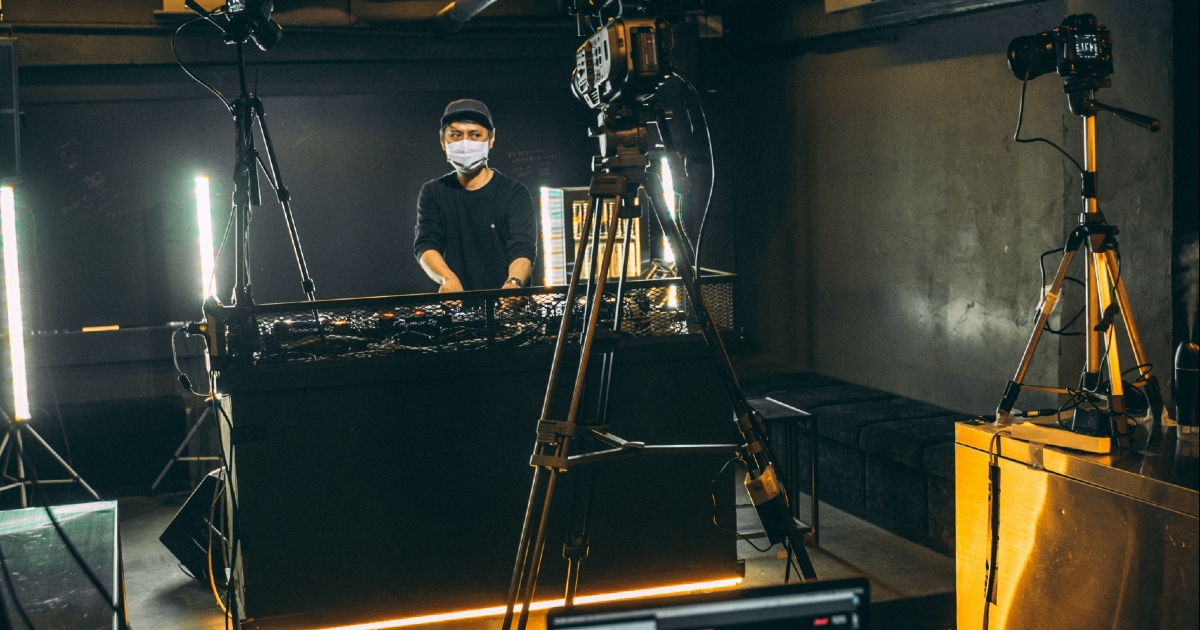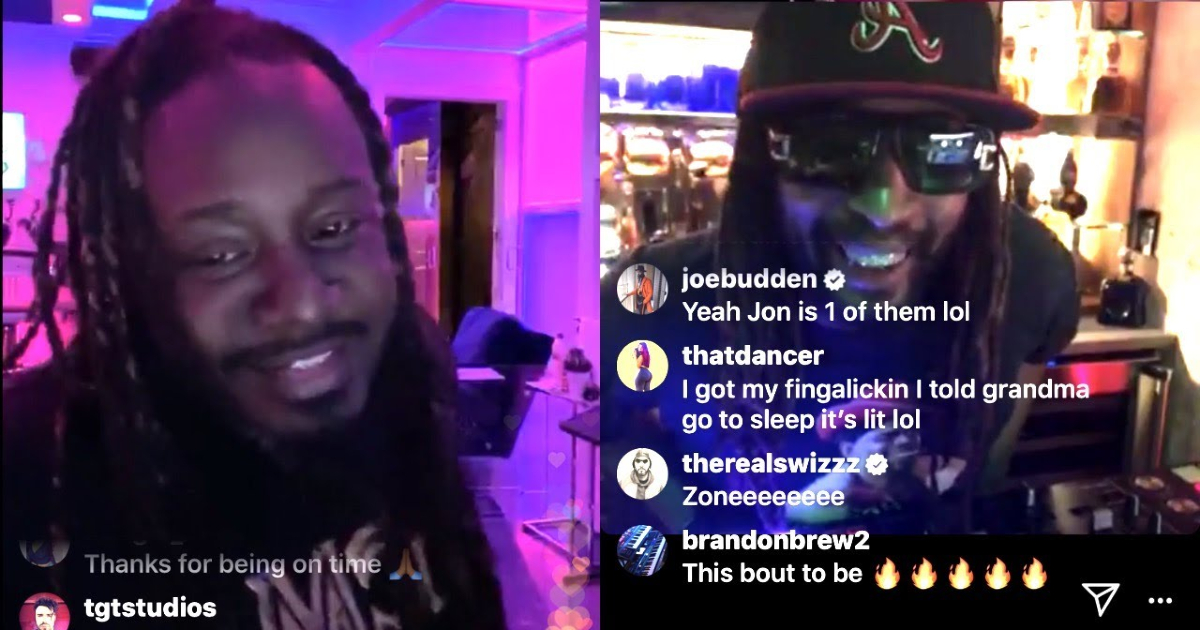Twitch
Beatsource Teams With Serato for All-Stars Competition
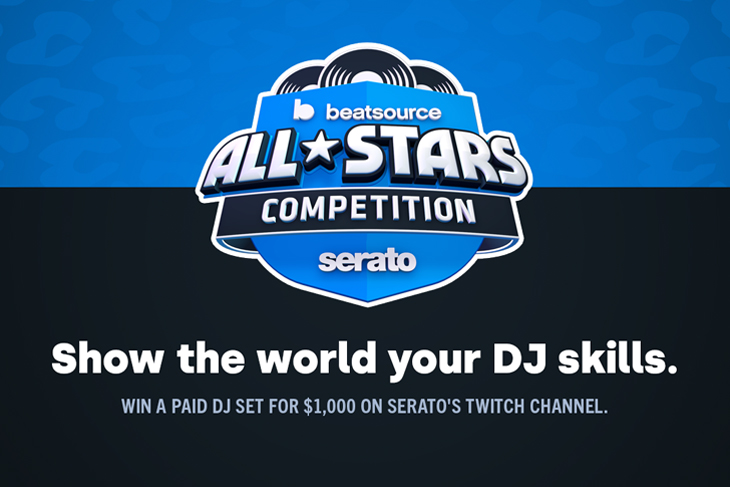
Beatsource is all about recognizing talented DJs. That’s why they have teamed up with Serato on the Beatsource All-Stars competition. DJs from around the world can enter for a chance to win a $1,000 paid headlining DJ set on Serato’s Twitch channel on Dec. 23, 2020. The winner will perform along with Four Color Zack, DJ Spider, and DJ Diamond Kuts.
How to enter
- Film yourself performing a 10-minute mix using Beatsource LINK and Serato DJ. You can only use tracks from Beatsource LINK.
- Upload your video to IGTV and tag #BeatsourceAllstars, @serato, and @beatsourceofficial in your caption. Your video must be published by midnight PST on Dec. 8, 2020.
Judging
Beatsource will review all entries on Dec. 9, 2020, and select one winner on Dec. 16, 2020. The mixes will be judged on creativity and vibe.
Additional prizes
- • One-year Beatsource LINK Pro subscription
- • Serato DJ Suite and Serato Studio lifetime licenses
- • Phase Ultimate, Case, and slipmats
- • Nomatic Travel Pack
- • Limited edition Beatsource and Serato merchandise
Related Post: Beatsource LINK Is Now Available in Serato DJ
‘R.O.A.D. Podcast’: Should New DJs Practice Before Streaming?
On this week’s episode of the R.O.A.D. Podcast, the crew discussed whether new DJs should practice and sharpen their skills before rushing to livestream on Twitch.
The fellas also questioned whether the new Pioneer DJ CDJ-3000 is relevant during these times.
Watch an excerpt above and the full interview here.
Follow the R.O.A.D. Podcast on Facebook, Instagram, SoundCloud, Twitch, Twitter, and YouTube.
Related Post: ‘R.O.A.D. Podcast’: Lil Jon on the Success of ‘Turn Down For What’
Facebook Clarifies Terms of Service for Live Streaming; What Are the DJ Community’s Next Steps?
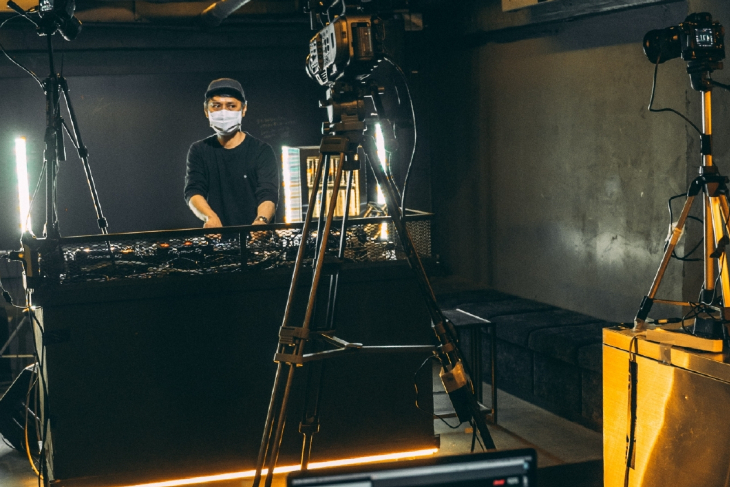
(Credit: Heshan Perera/Unsplash)
Rumors of Facebook‘s upcoming Terms of Service update noting the right to delete users and pages that “create music listening experiences” from the platform have turned out to be untrue.
According to a conversation between DJcity and a Facebook representative, the following is noted:
“People are likely mistaking the updates we’re making to our Facebook Terms of Service. Our music guidelines have been in place since we launched music on our platforms in 2018. They were written to balance our commitment to supporting musical expression on our platforms with also ensuring we uphold our agreements with rights holders, which remains unchanged.”
As the global quarantine enters its sixth month, DJs are navigating the decisions made by broadcasting platforms as they learn how to adapt to live streaming. Ultimately, it appears that by the end of 2020, there will be more answers than questions regarding how DJs can sustainably showcase their talents and earn a living wage in an online environment.
Platforms like Facebook, Instagram, and Twitch are becoming far more artist-friendly and much less DJ-equipped. Conversely, platforms like Mixcloud and YouTube are moving towards sustainability as online broadcast platforms.
Recently, Instagram-borne Verzuz announced partnerships with Apple Music and Diageo, Ciroc Vodka’s parent brand. Also, Twitch announced a two-day live stream partnership with Rolling Loud, a global, multi-city hip-hop festival, on September 12 and 13. Partnering with DJs requires negotiating rights fees and payment structures with BMI and ASCAP, while partnering with brands and festivals is an entirely different concept.
Facebook adds, “Shorter clips of music featuring a visual component are recommended [for use as Facebook live content]. As well, the greater the number of full-length recorded tracks in a video, the more likely it may be limited by the platform.”
Brands and events require platforms to aid in marketing products and ultimately turning profits from paid attendees. There is also a direct return on investment (ROI) for an outlet in working with a third-party. Hosting rights fees and platforms using an event’s popularity to increase their visibility amid numerous apps and sites battling for user bandwidth are vital drivers. Unless a DJ is a household name, the ROI likely isn’t there to make the opportunity worthwhile.
Other “traditional” streaming powers have emerged during the pandemic, too. Mixcloud was an early adapter in allowing DJs to stream mixes by negotiating with rights-holders and copyright organizations. Through their recent Mixcloud Live feature, rights-enabled DJ sets are possible with a Mixcloud Pro subscription.
Youtube averages two billion users per month and averages four times the daily traffic that Twitch does. Thus, Youtube has earned the revenue to be able to develop a content ID system that allows for rights-owners to stake their claim and share ad revenue on the uploaded/streamed mix.
Regardless of Facebook’s options, numerous streaming ideas and options deserve a closer look. First off, on the back of increased engagement from numerous users including the DJ community, Twitch stands to potentially increase its user base by 166% in the next year. For as much as live DJ sets are technically prohibited in their terms of service, there is the possibility, if mixing quickly (under 90 seconds) between tracks, to emerge unscathed due to the platform’s popularity and monetization opportunities, alone.
Instagram’s Badges program deserves consideration, too. Announced in June, the concept allows for Instagram Live viewers to send monetary tips to creators during live streams. Also, Instagram airs ads that play at the start of each user’s active engagement. The revenue from Instagram’s ads are paid at 55% to the creator and 45% to Instagram.
Soon after America’s national quarantine began, D-Nice played an Instagram Live DJ set for 150,000+ simultaneous viewers. About half a year later, Brandy and Monica‘s Verzuz battle was viewed by 700 percent more people. In the case of Brandy and Monica’s event, the combined net worth of the brands and sponsorships involved total $1.4 trillion. The support of live streaming from such major corporate players speaks to the power and potential it has.
Somewhere in between these massive successes, there exists a world of working DJs trying to figure out how to live stream sets for either fun or as a source of income. Thankfully, it appears that an industry is forming around live music streaming. Ideally, that industry’s success quickly trickles to the place where rights holders and platforms can discuss equitable ways to allow for DJs to spin music without fear of punishment.
Related Post: Instagram To Pay Content Creators Via ‘Badges’ Program and Ad Revenue
Music Industry Adapts to Increasing Power of Instagram, TikTok, and Twitch
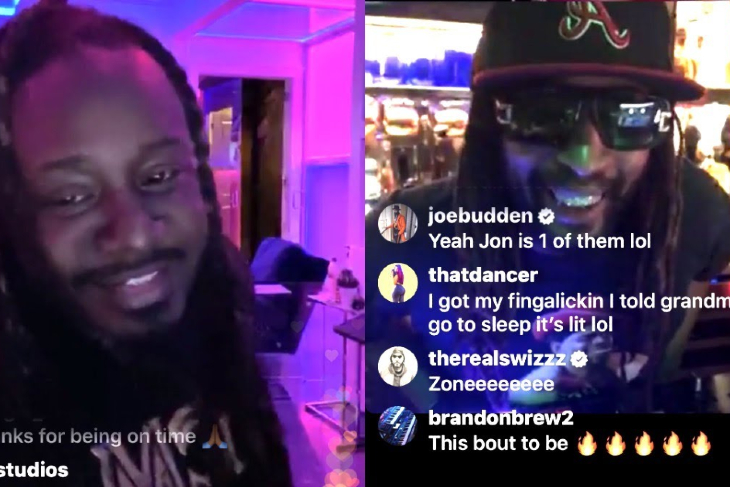
Lil Jon and T-Pain. (Source: Instagram)
Amid the pandemic, the music industry has begun to accept live streaming as a new industry norm. Adapting to platforms like Instagram, TikTok, and Twitch as the points of most powerful engagement is unique, and may not last. But for now, these are the leading spaces developing hits.
Recently, digital marketing agency Gupta Media hosted The New Normal, a Zoom panel featuring RCA Records’ Executive Vice President of A&R (and Keep Cool co-founder) Tunji Balogun, Friends At Work founder and CEO Ty Stiklorius, entertainment lawyer Doug Davis, and moderator Bill Werde, the director of Syracuse University’s Bandier undergraduate music industry program.
“We are trying to monetize these things on the fly and not wait for touring to come back,” Doug Davis said. “‘Sit and wait’ is not a good business model for what we do.” Davis has put this theory into practice. In under seven days, he, alongside Balogun, engineered the official release of Usher, Lil Jon, and Ludacris collaboration “SexBeat.” The track was “premiered” during T-Pain and Lil Jon’s Verzuz producer battle on Instagram Live on April 4. By April 10, the track was officially released as a single.
“We have this group chat, where a lot of the A&R team talk about what’s going on, and we were all watching the battle, and as soon as that song started to get previewed, everyone was like, ‘This needs to drop immediately,'” Balogun said. Doug Davis continued, “The beat battle was Saturday, we were doing the record deal on Monday and Tuesday. We had done a three-way record deal, Usher, Ludacris, Lil Jon by Wednesday to get the record out on Spotify by Friday. That’s how fast we are moving and seizing an opportunity. Tunji’s label was unbelievable in how they seized it. That’s how fast it is happening. We are trying to monetize these things on the fly and not wait for touring to come back.”
As for expanding the reach of a hit, look no further than songs like Megan Thee Stallion‘s “Savage” and Drake‘s “Toosie Slide” and their growth via the platform TikTok. Users of TikTok, an app on which two billion people are spending 14 hours a month watching short videos, are isolated in their home recording videos of themselves dancing to hit songs. “Toosie Slide” is particularly well-suited for the platform, as it includes brief dance instructions repeated in the hook. Regarding how TikTok has grown during the COVID-19 era, The Hollywood Reporter notes that the app has “become the great equalizer, collapsing the distance between a ‘capital s star’” and non-star content creators.
Finding ways to monetize this sudden change in content creation is essential. “Tech companies, Instagram Live, are going to get smarter about how to empower artists in those spaces, how to make it worth our while so that we are not just having 300,000 people tune in and not have any access to data around that or access to income from that,” says Stiklorius. “That is going to keep evolving in a way that is long-lasting and will create new revenue streams for artists.”
Twitch’s established growth in the gaming industry as a monetizable platform has intrigued music industry executives during this era. According to Balogun, “The people at Twitch, which is a monetizable platform, unlike Instagram, are working with a lot of different artists and tapping into that technology and looking forward to finding new ways for artists to make money in that space.”
“You are going to see the live stream world continue to grow,” Balogun continues. “It wasn’t really a legitimate form of entertainment until this happened.” Stiklorius agrees, noting, “I can’t imagine that DJs and artists aren’t going to continue doing [live streams].” Moreover, she imagines that “much-reduced” ticket prices will spur the continuation of streaming as a solution.
Social media’s adaptations in the wake of the COVID-19 outbreak has led to what The Hollywood Reporter refers to as “a community riffing off each other and inspired by developing amazing creativity.” The music industry appears to be adapting for the speed at which hit songs are being created and spread.
Related Post: Notable DJs Share Plans for Dealing With Coronavirus
Popular
-
May 23, 2023
The Best Remixes for Wedding DJs 2023

Wedding season has arrived! DJcity’s Remix Director Sir Marcus has put together a list of wedding-friendly tracks guaranteed to freshen up your DJ sets and...
-
December 22, 2023
Our Biggest Sale of the Year: Join DJcity for $1 🚨
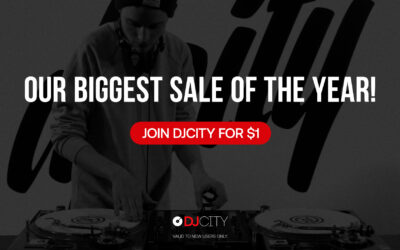
We just launched our biggest sale of the year! Get 90% off a DJcity membership and join for just $1 (regular price $10) for the first month when you check...
-
February 15, 2022
New DJcity Pricing Plans Now Available

Here at DJcity, customer satisfaction is crucial, and therefore we always take input and feedback from our customers and DJ community very seriously. Due t...
-
April 12, 2024
New and Notable Tracks: Apr. 12
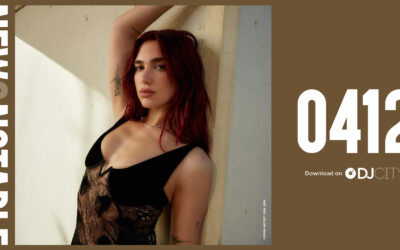
New tracks that DJs should know about.
-
December 18, 2023
Top 30 Remixes, Bootlegs, and DJ Edits of 2023
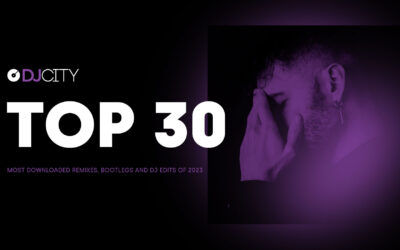
ATCG. Last Thursday, DJcity revealed its most downloaded tracks of 2023. Today, we dive deeper to uncover the most popular remixes, bootlegs, and edits of...
-
July 6, 2022
Afrobeats and Dance added as Main Genres on DJcity
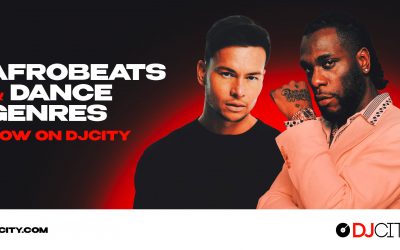
At DJcity, we are always working to make sure that the way our record pool functions reflects the needs of our users. Therefore in our latest update, we sw...
-
June 4, 2020
50 Cent’s ‘In Da Club’ Remixed by Mr. M!X: DJcity Exclusive

Mr. M!X. (Source:Instagram) Dutch DJ/producer MR. M!X has delivered a remix of 50 Cent's birthday anthem "In Da Club." The moombahton-inspired flip is avai...
-
June 29, 2015
Skrillex and Diplo Drop ‘Where Are U Now’ Video Feat. Justin Bieber
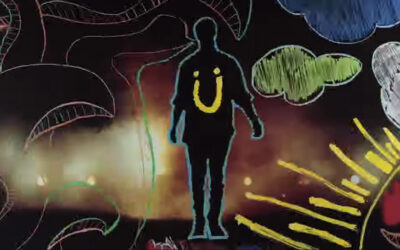
Some fans were skeptical when they discovered that Skrillex and Diplo's debut Jack U album includes a song with Justin Bieber. "Where Are U Now" has...
-
January 21, 2020
Watch The Weeknd’s ‘Blinding Lights’ Music Video
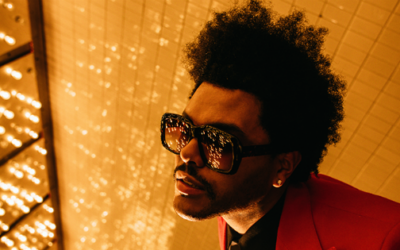
The Weeknd has released a video treatment for his Max Martin-produced hit "Blinding Lights." The song peaked at No. 11 on Billboard's Hot 100 chart. The da...
-
November 24, 2015
2 Chainz Releases ‘BFF’ Video Feat. Jeezy
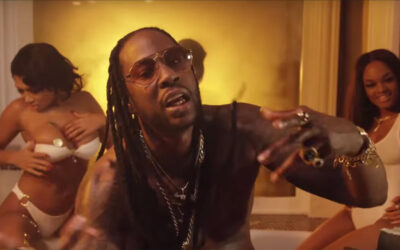
2 Chainz released the remix of "BFF" featuring Jeezy two weeks ago, and today he returns with visuals to go along with it. The video for the Zaytove...

